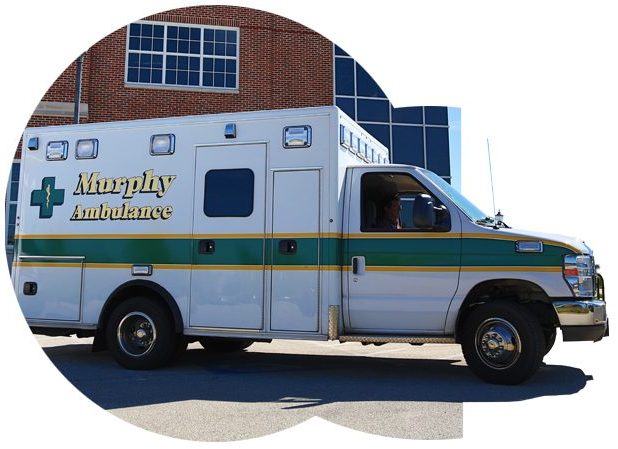Available and Affordable Medical Transportation Options for Seamless Health Support
In the realm of healthcare, the ease of access and price of clinical transportation are extremely important in making certain individuals can access the care they need when they need it. The capability to perfectly browse transport alternatives can considerably affect an individual's ability to obtain timely clinical interest, follow-up care, and total wellness. From non-emergency medical transport services to innovative remedies like telehealth, the landscape of clinical transport is advancing to satisfy the diverse needs of people. Considering the value of this facet in health care shipment, discovering the variety of choices available becomes necessary for resolving gaps in access and cost.
Non-Emergency Medical Transportation Services

These services are staffed by trained specialists that prioritize individual comfort and safety and security throughout transportation. Vehicle drivers are geared up to deal with people with varying medical needs and make certain that all trips are trouble-free and smooth - Medical Transportation Services Near Me. In addition, non-emergency medical transportation services typically utilize customized lorries that are wheelchair-accessible, making them appropriate for a large range of patients with different mobility needs
Volunteer Vehicle Driver Programs
Volunteer motorist programs are critical in providing transportation assistance for individuals in requirement of non-urgent clinical treatment. These programs count on the kindness of volunteers who donate their time and automobiles to help transport individuals to and from medical consultations. By utilizing volunteer chauffeurs, organizations can use an affordable option for people who may not have access to reputable transportation.
One of the key advantages of volunteer motorist programs is the customized care and attention that people get. Unlike standard transportation services, volunteer vehicle drivers often establish a relationship with the people they aid, developing a encouraging and thoughtful setting during what can be a demanding time. Furthermore, volunteer driver programs can assist bridge the space for individuals residing in underserved or rural locations where public transport choices might be limited.
Mass Transit Options

Among the key benefits of public transport is right here its prevalent schedule in country and metropolitan areas alike. This considerable network permits patients from varied backgrounds to travel to clinical appointments with family member convenience. In addition, public transport systems are often equipped to fit people with handicaps, offering obtainable travel options for those with wheelchair obstacles.

Ride-Sharing and Transport Network Business
The development of contemporary transport choices for clinical objectives expands past traditional public systems like buses and trains to incorporate the innovative world of ride-sharing and transport network business. Ride-sharing services such as Uber and Lyft have reinvented the method individuals travel to medical appointments, providing benefit and flexibility to patients that might not have accessibility to their automobiles or standard public transport. These platforms allow customers to ask for an adventure with the touch of a switch on their smart devices, supplying door-to-door solution that can be particularly useful for individuals with movement challenges or those requiring aid.
Transport network business (TNCs) have additionally played a substantial function in connecting the space in medical transportation solutions. Firms like Veyo and RoundTrip concentrate on non-emergency clinical transportation, dealing with patients that need a greater level useful during their trips to clinical facilities. By partnering with doctor and insurers, TNCs ensure that people can access prompt and trustworthy transportation services, eventually contributing to boosted wellness results and client contentment.
Telehealth and Digital Consultations
Enhancing healthcare ease of access and comfort, telehealth and virtual consultations have actually become essential components in modern clinical techniques, reinventing the method clients engage with health care companies. Telehealth leverages modern technology to help with remote interaction in between patients and health care specialists, offering a vast range of solutions such as digital assessments, remote tracking, and digital prescriptions. Virtual examinations allow patients to seek medical recommendations, medical diagnosis, and treatment from the comfort of their homes, eliminating the requirement for physical check outs to health care centers. This technique not just conserves time and lowers transportation costs for clients but likewise improves the total efficiency of healthcare delivery.
Additionally, telehealth plays an essential role in extending clinical services to underserved communities, rural locations, and people with limited wheelchair. By damaging down geographical obstacles and raising medical care outreach, telehealth advertises early intervention, continuity of treatment, and patient engagement. As technology continues to breakthrough, telehealth is positioned to play a progressively significant role in forming the future of health care shipment, fostering better wellness results and client contentment.
Verdict

From non-emergency medical transport services to cutting-edge services like telehealth, the landscape of clinical transportation is evolving to satisfy the diverse requirements of patients.Non-Emergency Medical Transport Provider assist in the safe and timely transport of individuals needing non-urgent medical treatment to and from healthcare facilities.The advancement of contemporary transport choices for clinical functions extends past traditional public systems like trains and buses to incorporate the ingenious world of ride-sharing and transportation network firms.Transport network firms (TNCs) have additionally played a substantial function in bridging the space in clinical transportation solutions. Non-Emergency Medical Transportation Services, Volunteer Driver Programs, Public Transportation Options, Ride-Sharing and Transport Network Companies, and Telehealth and Virtual Consultations all play an essential function in addressing transport obstacles to health care access.